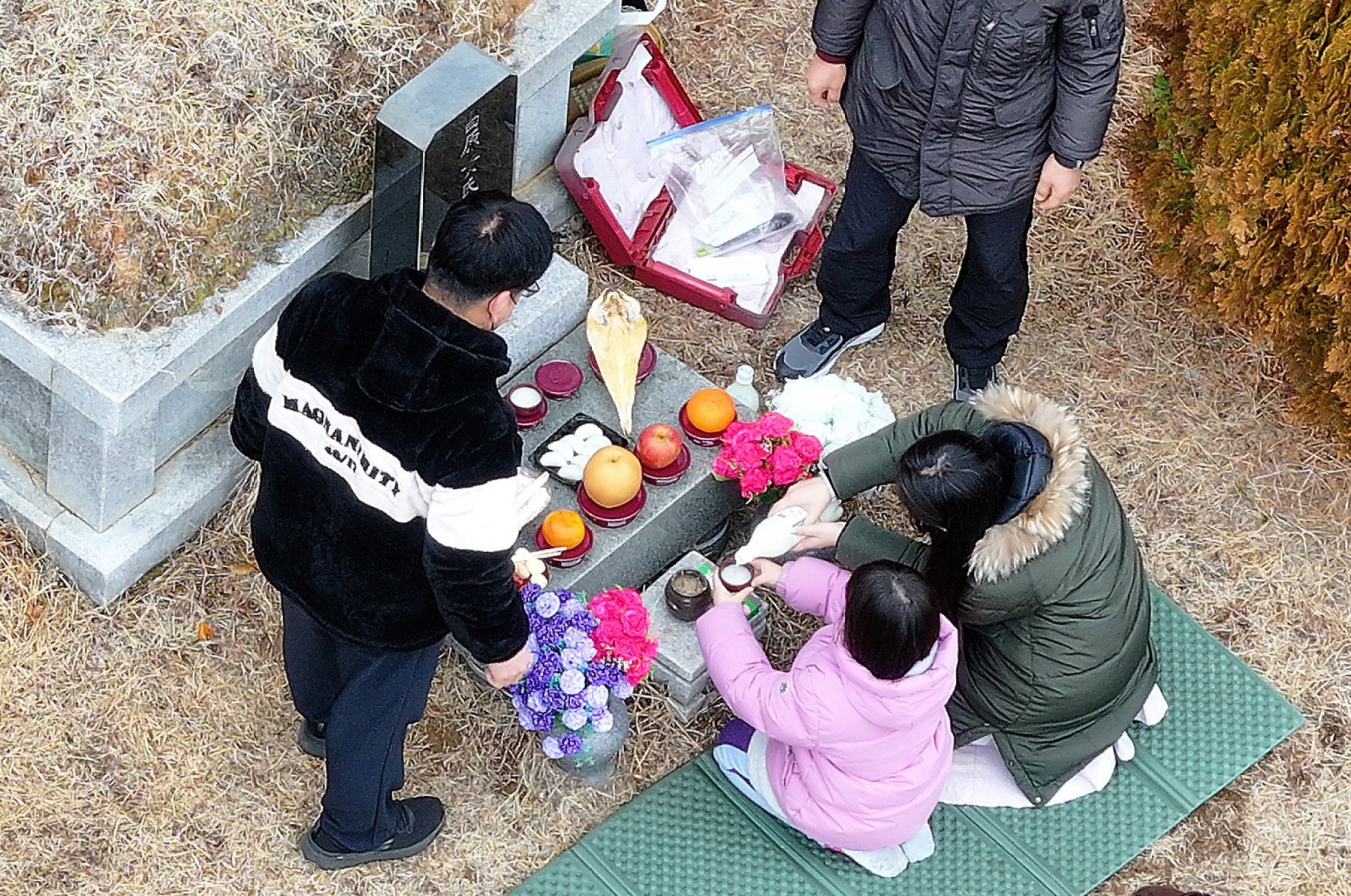South Koreans shocked by spike in prices of Lunar New Year food items – ‘it’s too much’
“Tangerines and apples have risen the most in price,” Kim said.
The rise in prices of agricultural products in January far outpaced the average consumer price inflation rate of 2.8 per cent, according to government data. Prices of apples rose 56.8 per cent, while that of pears and tangerines increased 41.2 per cent and 39.8 per cent, respectively.
Thai nightlife rebounds with late opening as Hong Kong revives campaign before Lunar New Year
Thai nightlife rebounds with late opening as Hong Kong revives campaign before Lunar New Year
“But we can’t skip these essential items for the Seollal charye,” Kim said.
According to news reports, a standard basket of top-quality fruits given as a Seollal gift sells for 150,000 won on average at department stores, comprising a 20,000 won (US$15) apple, a 20,000 won pear, a 45,000 won shine muscat, a 20,000 won mango, a 25,000 won apple mango, and a 20,000 won Cheonhyehyang tangerine.
Cho Mi-hark, 66, said quality apples and pears had almost doubled in price recently while vegetable prices had also surged. In comparison, meat prices remained stable compared with a year earlier, Cho added.
Seollal falls on February 10 this year, with Koreans enjoying four consecutive holidays from February 9 to 12.
South Korea lawmakers urge tougher laws after alleged theft of warplane secrets
South Korea lawmakers urge tougher laws after alleged theft of warplane secrets
Many of them visit hometowns for family reunions, feasting, playing board games such as yut, and paying respects before their ancestors’ tombs. Children also receive cash gifts on Seollal when they bow to adults.
Apart from grocery shopping to prepare for the holiday rites and feasts, South Korean housewives often find themselves overwhelmed with cooking and other chores – a phenomenon known as the myongjol (holidays) syndrome. These housewives and others tend to indulge in extravagant purchases after the holidays.
However, an increasing number of South Koreans are opting to abandon ancestral worship rites and use their coming holidays for overseas trips.

Ahead of the holiday season, the Ministry of the Interior and Safety is advising South Koreans to drive safely. Past Lunar New Year holidays saw a spike in traffic accidents in South Korea, compared with other periods of the year.
The ministry is urging drivers to inspect their engines, brakes, and tires two to three days before their journey home, and take a break at designated rest stops or sleeping shelters if they feel tired. It also warns them about the dangers of drink-driving.
Meanwhile, the ministry is also advising residents not to leave food unattended while cooking and to keep flammable items away from cooking fires.
The eve of the Lunar New Year in 2023 saw 39 fire incidents reported across South Korea, surpassing the daily average of 28.9 fires over the year.
Is South Korea ‘adopting Japanese narratives’ on disputed islets under Yoon?
Is South Korea ‘adopting Japanese narratives’ on disputed islets under Yoon?
The government’s safety advisories, however, are not foremost in the minds of South Korean housewives like Kim. Instead, she was thinking of belt-tightening during the Lunar New Year holidays amid inflationary pressures.
“As you are supposed to put fruits in odd numbers on the charye (prayer) table, I used to place five apples. But this time I will cut it down to three,” she said with a chuckle. “My husband’s parents in heaven will understand,” she added.


 Play with Welcome Bonus Up to 300%
Play with Welcome Bonus Up to 300%